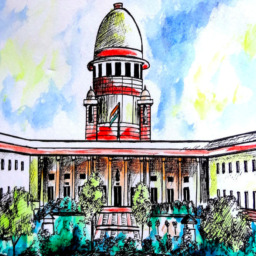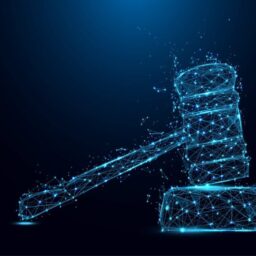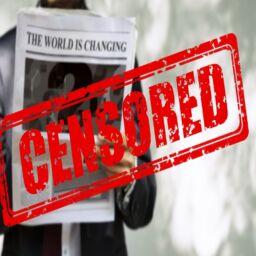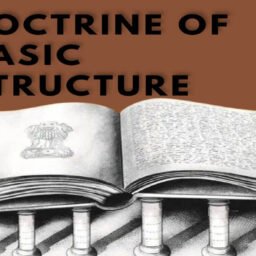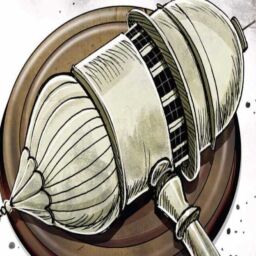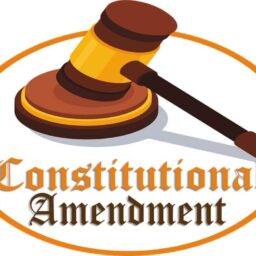“You can revive an economy, but not a corpse.”
INTRODUCTION
India the 2nd most populated country in the world with an astounding population of 138 crores (1.38 billion) and is one of the biggest democracies in the world. Today as the 2nd wave of COVID-19 ravages India with an average daily death toll1 of more than 4000 deaths and total deaths amounting to more than 3 lakhs and increasing. The family members of the deceased are not just terrified of losing their loved one but are even struggling to complete their last rites and burial rites as the Crematorium are more than overwhelmed with the amounts of dead bodies it can process. Article 21 of the Indian Constitution grants the citizens of India the right to life and personal liberty which has been grossly infringed in this time of COVID-19. It is but a sad truth that we face today in this era of fear of COVID-19 which has engulfed the entire world.
INTERPRETATION OF ARTICLE 21
The Supreme Court has established Article 21 as a very competent and potent tool for recognizing the essence of life and protecting life and personal liberties. The Supreme Court of India defined the word life in Article 21 in an open-minded and broad perspective and held that the Right to Life is guaranteed by article 21 which also includes the right to livelihood.
In the landmark Olga Tellis v. Bombay Municipal Corporation 1986 2 It was held that, as no person can live without the means of living (Means of livelihood). In the case the essential pronouncement on the effect of Article 21 on urbanization made by the Supreme Court was quintessential, As the eviction of people from pavement or slum would have not only resulted in deprivation of shelter but it would have impacted the means of livelihood inevitably and thus means of deprivation of life itself.
But in the current situation of this pandemic, the most important fundamental right is the right conferred under Article 21 is Right to Medical Care 3 As one of the Landmark cases regarding Medical Care – in Parmananda Katara v. Union of India,4 the Supreme Court of India held that Preserving Life is of paramount importance, As once life is lost status quo ante cannot be restored and so it is the duty of doctors to indiscriminately save or preserve life.
LEGAL IMPLICATIONS
We can consider the COVID-19 dilemma as unprecedented and the legal implications of withholding oxygen are not only in violation of Article 21 but numerous relevant sections of laws. We may consider that the innumerable deaths caused due to the non-availability of oxygen to COVID-19 patients were the fault of the system that has not only failed our population to give it’s one of the most basic right the Right to Life.
But this fault does have its legal repercussions and these repercussions are somewhat getting ignored in this chaos caused by this deadly pandemic. We just cannot ignore the ethical controversy caused by the system making the medical professionals choose between a serious moral dilemmas that they should not have been assigned to choose from the start. And the moral dilemma that I am talking here about is that of choosing which patients get oxygen and which do not. We cannot and shall not make the medical professionals decide whose life has more value or importance as irrespective of age every person has a Right to life.
In this case of ethical dilemma, the doctors go with the principle of “Save the most lives” 5 which is intuitively quite appealing but has a sense of being specious, and when we focus a bit more and try to understand its actual interpretation the dark side of the coin becomes clear. The literal translation of the principle stated above is that Allocation of oxygen to patients who are expected to make faster recoveries directly becomes a disadvantage for the patients having pre-existing conditions and poor health which also corresponds to their social-economic status, age or disability.
As the Supreme Court held that Preserving Life is of paramount importance, as once life is lost status quo ante cannot be restored and so it is the duty of doctors to indiscriminately save or preserve life. 6 But as stated above the doctors do not have an option but to discriminate based upon the life expectancy and recovery rate of the patient and allocate oxygen to them. This 2nd wave of COVID-19 has obliterated the egalitarian idea that everyone is equal and deserves equal rights and opportunity in this case the opportunity to live.
Judicial Systems views on the current situation in India regarding Oxygen shortage resulting in deaths
- The Supreme Court has now taken Suo moto cognizance of the situation regarding the oxygen shortage in hospitals nationwide. It also stated that India Almost is at a point of national emergency and a national plan has to be laid out immediately.7
- A PIL has been filed before the Supreme Court by Deepak Raj Singh a social activist. The PIL seeks compensation for patient’s families who have succumbed to COVID 19 and have died due to Oxygen Shortage8
The plea also has suggested compulsory free vaccination to all Indians irrespective of their age and to provide free education to children up to the age 21, especially whose family have died due to COVID-19.
- The Allahabad High court observed that the death of patients infected with COVID-19 due to a shortage of oxygen is no less than genocide.9
- The Delhi High Court gave the statement that the State has failed in Protecting Basic Right To life Under Article 21.10
- The Bombay high court Goa Bench stated that Article 21 is completely violated if people die due to lack of Oxygen.11
CONCLUSION
The hard question that the Government has to answer is that of the scarcity of oxygen and other medically important resources. And should these resources such as oxygen be allocated on the principle of “Save the most life” which unfortunately creates a goal that may suggest many violations of various relevant sections of law especially that of Article 21.
Author(s) Name: Rugved Mahamuni (Student, Pune University, Pune)
References:
- Death toll In India as of 7th May 2021 https://www.thehindu.com/news/national/coronavirus-indias-single-day-death-toll-crosses-4000-for-the-first-time-on-may-7-2021/article34509117.ece
- Olga Tellis and others v. Bombay Municipal Corporation and others AIR 1986 SC 180
- Bandhua Mukti Morcha vs Union of India & Others on 16 December, 1983 AIR 80
- Pt. Parmanand Katara vs Union of India & Ors. on 28 August, 1989 AIR 2039, 1989 SCR (3) 997
- https://blogs.bmj.com/medical-ethics/2020/04/07/icu-triage-how-many-lives-or-whose-lives/ PARA 3
- https://indiankanoon.org/doc/498126/ 2nd para
- https://main.sci.gov.in/supremecourt/2021/11001/11001_2021_35_301_27825_Judgement_30-Apr-2021.pdf
- https://legal60.com/plea-for-repayment-for-families-of-affected-person-died-due-to-oxygen-shortage/ 3rd para




